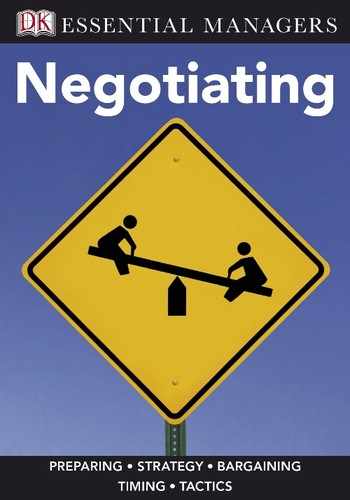Learning from the Masters
Irrespective of the field in which they practice their trade, be it business, law, diplomacy, labor, or sports, master negotiators possess a unique set of combined characteristics that clearly differentiate them from common negotiators, and define their success. Every negotiator can benefit by understanding the skills and attitudes of a master negotiator.
Becoming a winning negotiator
Master negotiators have superior negotiating capabilities in three major areas: the ability to understand and analyze issues (cognitive skills); the ability to manage emotions, especially negative ones (emotional skills); and the ability to connect with others by developing relationships and trust (social skills). These are the areas that you need to work on if you are to hone your negotiating skills and work toward becoming a master negotiator.

Defining key attributes
The following characteristics are common to all master negotiators:
Using masterful due diligence Master negotiators understand the dangers of being poorly prepared, and invest ample resources in planning and gathering information.
Thinking strategically Negotiations are rarely a one-on-one business, so master negotiators spend time analyzing the interests of the “players” who are not at the table, how the power balance lies, and what opportunities exist to increase their own power.
Being firm and flexible Master negotiators are firm and clear about the issues they must have, and flexible on the issues they would like to have.
Seeing the other side Master negotiators know that they can only present a good offer or trade-off if they know what their counterpart’s interests are. They are able to easily shift from seeing things from their point of view to seeing things from that of the other party.
Investing in relationships Master negotiators use all possible opportunities to nurture trust and develop relationships, and make sure that those connections remain intact over time.
Managing emotions Master negotiators make an active choice to always monitor and control their emotions constructively.
Appreciating uniqueness Master negotiators approach every situation afresh and are always ready to modify their practices and adapt to the specific conditions of the current negotiation.
Bad deals
Master negotiators know that negotiations are not about making the deal and signing the contract, but rather about diligently pursuing their interests. No deal is better than a bad deal, so they condition themselves mentally to walk away from the table if and when their interests are not met. Inexperienced negotiators tend to be biased toward securing a deal and often tend to stay at the table and get a poor deal. There are two reasons for this: first, negotiators do not want to let go of the sunk costs (expenses) involved in attempting to make the deal. Second, they do not want to face the fact that it simply is not possible to make the deal and thus feel that they have failed to produce results. Master negotiators, in contrast, are willing to let go of the sunk costs and do not feel that they have failed in the negotiation task if the deal does not go through.
